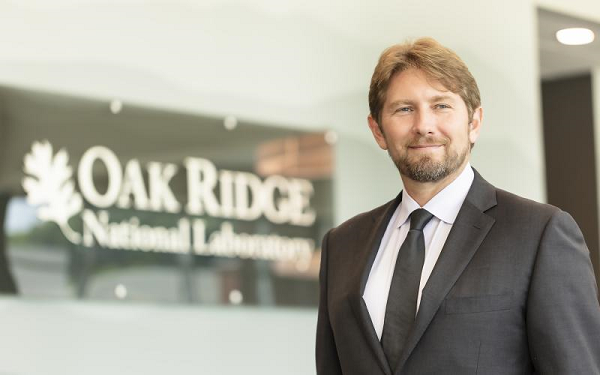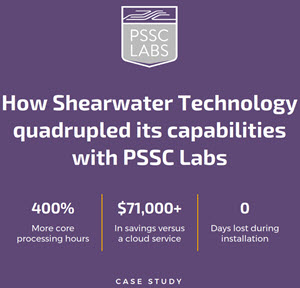
Travis Humble
Travis Humble has been named director of the Quantum Science Center headquartered at the Department of Energy’s Oak Ridge National Laboratory. The QSC is a multi-institutional partnership spanning industry, academia and government institutions and is tasked with investigating the potential of quantum materials, sensors and algorithms.
Humble was named deputy director in 2020, when DOE established this five-year, $115 million effort as one of five National Quantum Information Science Research Centers. Following the departure of former QSC Director David Dean, Humble began serving as interim director in January.
“I am excited to be working at the forefront of quantum science and technology with this amazing team of scientists and engineers,” he said. “The QSC provides a wonderful opportunity to leverage our nation’s best and brightest for solving some of the most interesting scientific problems of our time.”
As interim director, Humble has overseen the QSC’s three primary focus areas: quantum materials discovery and development, quantum algorithms and simulation, and quantum devices and sensors for discovery science. In his new role, he will continue collaborating with QSC partner institutions including ORNL, Los Alamos National Laboratory, Fermi National Accelerator Laboratory, Purdue University, Microsoft and IBM.
An ORNL scientist, Humble also directs the laboratory’s Quantum Computing Institute and the Oak Ridge Leadership Computing Facility’s Quantum Computing User Program. The QSC leverages DOE user facilities, including the OLCF, to solve research problems.
Humble joined ORNL as an intelligence community postdoctoral research fellow in 2005, then became a staff member in 2007. He received a bachelor’s degree in chemistry from the University of North Carolina Wilmington and a master’s degree and doctorate in theoretical chemistry from the University of Oregon.
As QSC director, Humble will prioritize the development of quantum materials for quantum computing and quantum sensing, as well as the application of these technologies to aid scientific discovery, improve the nation’s security and energy efficiency, and ensure economic competitiveness. Other goals include demonstrating the advantages of early quantum computers and advancing methods for probing the fundamental physics of quantum matter.
By addressing current quantum challenges and expanding workforce development activities focused on recruitment and training, Humble anticipates that the QSC’s leadership role in the ongoing quantum revolution will continue to grow.
Humble also serves as an assistant professor with the University of Tennessee, Knoxville’s Bredesen Center for Interdisciplinary Research and Graduate Education, editor-in-chief for ACM Transactions on Quantum Computing, associate editor for Quantum Information Processing and co-chair of the Institute of Electrical and Electronics Engineers Quantum Initiative.
Now in his 17th year at ORNL and more passionate about the future of quantum than ever, Humble is positioning the QSC to shape quantum research and technologies at national and international scales.
“Quantum science and technology are transformative paradigms, and we have only scratched the surface of what is possible,” he said. “The QSC will bring new discoveries in materials, computing and sensing that promote a deeper understanding of these ideas and prepare us for the next generation of quantum technologies.”
The QSC, a DOE National Quantum Information Science Research Center led by ORNL, performs cutting-edge research at national laboratories, universities, and industry partners to overcome key roadblocks in quantum state resilience, controllability, and ultimately the scalability of quantum technologies. QSC researchers are designing materials that enable topological quantum computing; implementing new quantum sensors to characterize topological states and detect dark matter; and designing quantum algorithms and simulations to provide a greater understanding of quantum materials, chemistry, and quantum field theories. These innovations enable the QSC to accelerate information processing, explore the previously unmeasurable, and better predict quantum performance across technologies. For more information, visit qscience.org.



